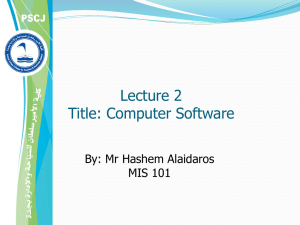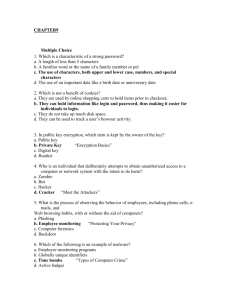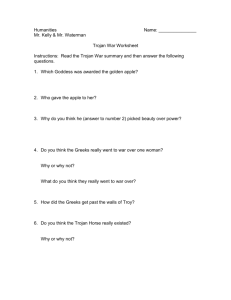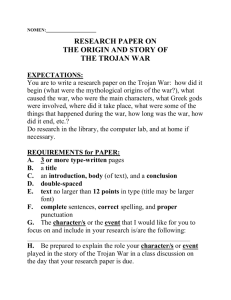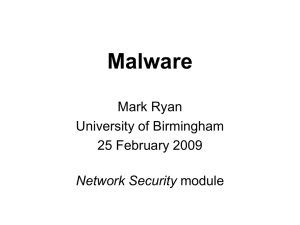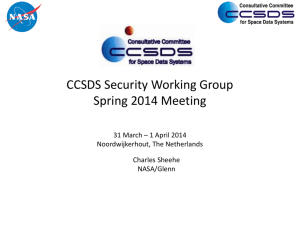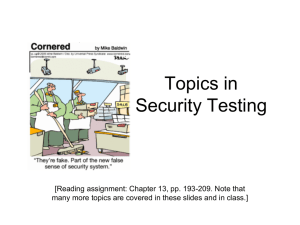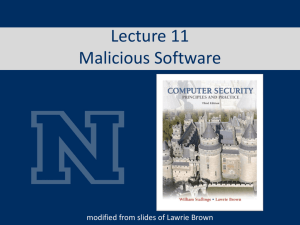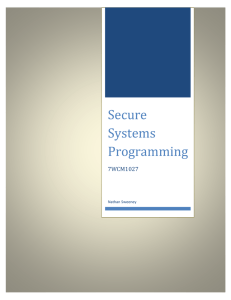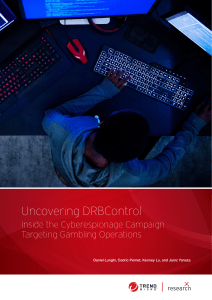Software Flaws and Malware
advertisement
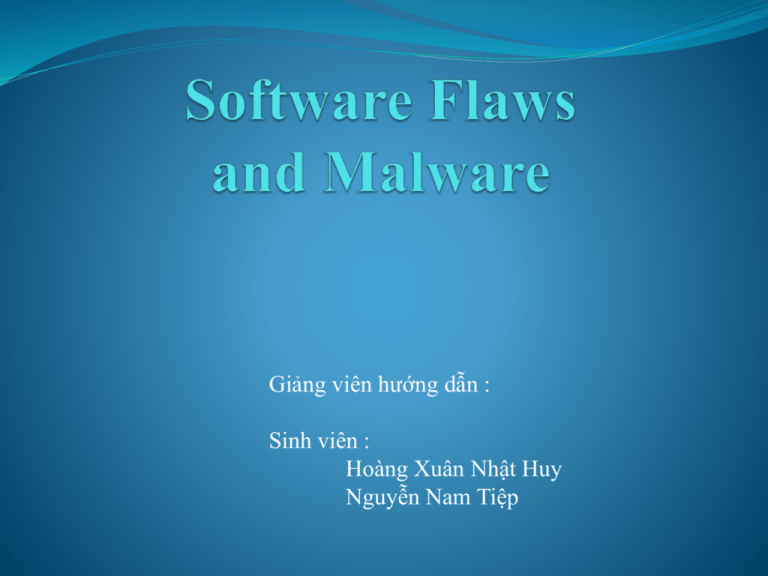
Giảng viên hướng dẫn : Sinh viên : Hoàng Xuân Nhật Huy Nguyễn Nam Tiệp What are software flaws and malware ? Program flaws (unintentional) Buffer overflow Race conditions Malicious software (intentional) Viruses Worms Other breeds of malware Buffer Overflow In the following example, a program has two data items which are adjacent in memory: an 8-byte-long string buffer, A, and a two-byte big-endian integer, B. Initially, A contains nothing but zero bytes, and B contains the number 1979. Now, the program attempts to store the null-terminated string "excessive" with ASCII encoding in the A buffer. "excessive" is 9 characters long and encodes to 10 bytes including the terminator, but A can take only 8 bytes. By failing to check the length of the string, it also overwrites the value of B: Race Conditions Race conditions are common Race conditions may be more prevalent than buffer overflows But race conditions harder to exploit Critical race conditions and non-critical race conditions A critical race occurs when the order in which internal variables are changed determines the eventual state that the state machine will end up in. A non-critical race occurs when the order in which internal variables are changed does not alter the eventual state.. Dining philosophers problem 3 2 3 4 4 2 0 1 1 0 Solution think until the left fork is available; when it is, pick it up; think until the right fork is available; when it is, pick it up; when both forks are held, eat for a fixed amount of time; then, put the right fork down; then, put the left fork down; repeat from the beginning. Malware Types of malware (no standard definition) Virus passive propagation Worm active propagation Trojan horse unexpected functionality Trapdoor/backdoor unauthorized access Spyware steals info, such as passwords Where do Viruses Live? Boot sector Memory Applications, macros, data, etc. Library routines Compilers, debuggers, virus checker, etc. Malware Examples Brain virus (1986) Morris worm (1988) Mac trojan (2001) Backdoor through Powershell (2004) Ardamax keylog (2010) Virus : Blame virus First appeared in 1986 More annoying than harmful A prototype for later viruses Not much reaction by users What it did 1. 2. 3. Placed itself in boot sector (and other places) Screened disk calls to avoid detection Each disk read, checked boot sector to see if boot sector infected; if not, goto 1 Brain did nothing really malicious Worm : Morris Worm First appeared in 1988 What it tried to do Determine where it could spread, then… …spread its infection and… …remain undiscovered Morris claimed his worm had a bug! It tried to re-infect infected systems Led to resource exhaustion Effect was like a so-called rabbit Trojan horse : Mac trojan Trojan: unexpected functionality File icon for freeMusic.mp3: For a real mp3, double click on icon o iTunes opens o Music in mp3 file plays But for freeMusic.mp3, unexpected results Double click on freeMusic.mp3 iTunes opens (expected) “Wild Laugh” (not expected) Message box (not expected) Backdoor : Power Shell A backdoor is a method of bypassing normal authentication, securing unauthorized remote access to a computer, Open a port from 0 to 65535. Spyware : Ardamax Records all typed keystrokes, passwords and hidden characters. Records a log of all websites visited for all browsers. Ardamax Keylogger can upload recorded logs through FTP delivery. Record voice from the microphone with real-time compression.
